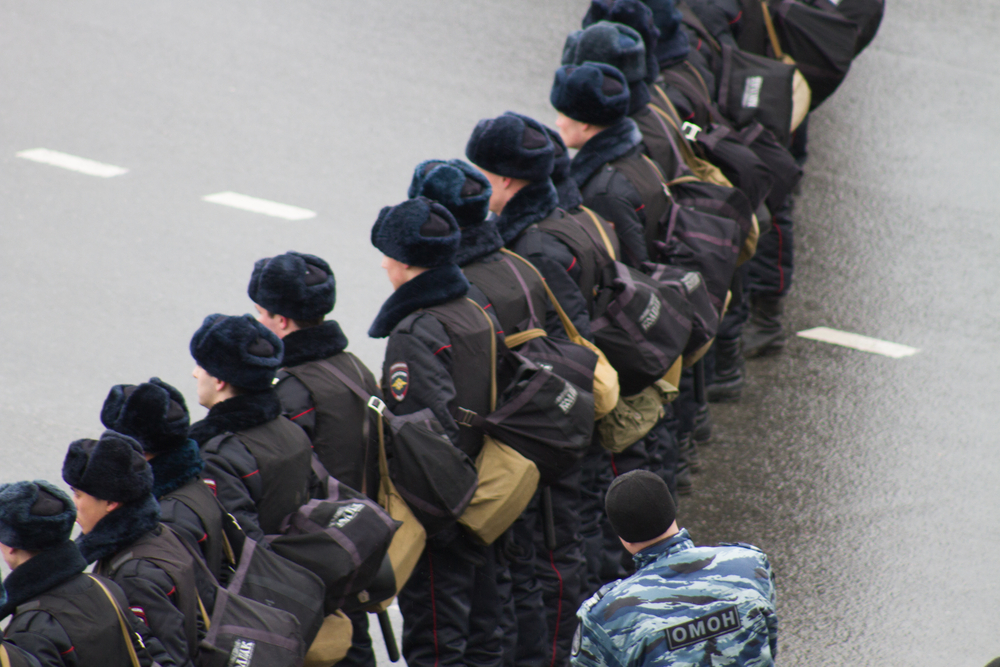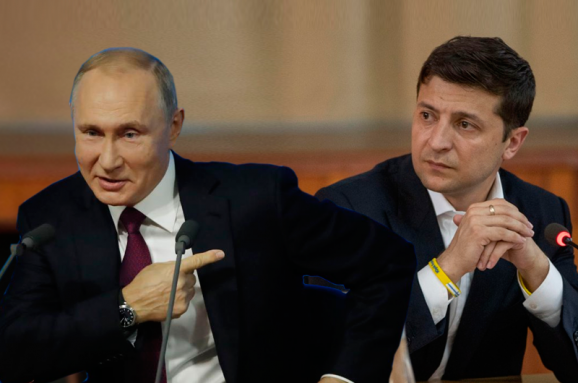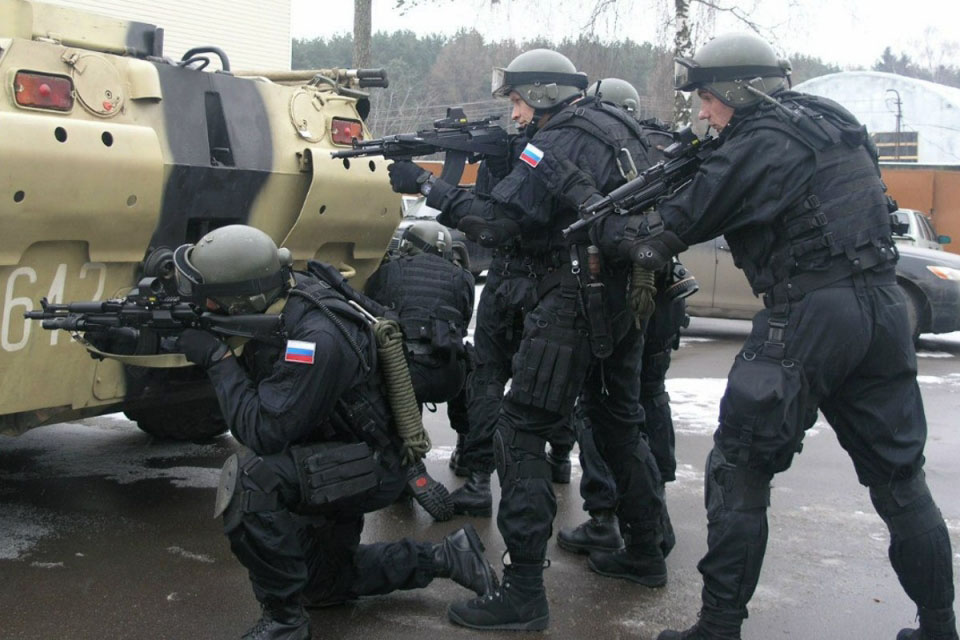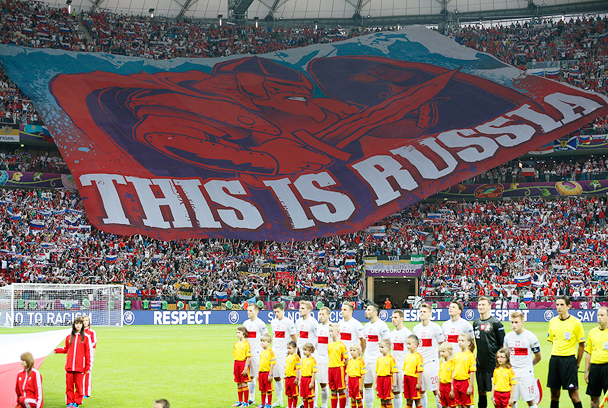Curiously, President Putin’s missteps in Ukraine have made Russia’s survival dependent on the survival of Ukraine.
If Russia conquers Ukraine, its unprovoked aggression and atrocities will make it a pariah state that will ultimately collapse because its isolation will magnify its weaknesses. If, though, Ukraine survives, Putin will be discredited and inevitably will fall, while Russia will be weaker although it may salvage something that is sufficient to build a more modest and resilient nation.
In a word, the Russian imperial state is dead whatever the outcome of the war. Ukraine’s battlefield successes over the last few days suggest the end may come sooner rather than later.
What then will it take to save what remains of Russia?
To preserve what can be saved, the Russian state and Russian society will have to change.
Deputinization is the start of deimperialization
Russia will have to sweep away the debris of Putinism. Putinism is much larger than Putin himself, who must in any case go (and ideally be tried in The Hague for crimes against humanity in Ukraine). Putinism is based on authoritarianism, corruption, and a compliant civil society. With the departure of Putin, Russia must ban the political party most associated with him, the United Russia party, to avoid recidivism in politics—as Ukraine banned the pro-Russian Opposition–For Life party (the successor to disgraced former President Yanukovych’s Party of Regions) whose leader, Viktor Medvedchuk, is currently under arrest for treason.
Dismantling the FSB
The Russian federal security service (the FSB)–the siloviki “state-within-a-state” – must also be dismantled, much as Ukraine’s President Poroshenko when he came to power dissolved the powerful national traffic police department because it was too corrupt to fix. At the same time, related departments in the Russian state must be eliminated, such as – if it exists – Lab X, Russia’s poison laboratory that is used to carry out assassinations, such as the attempted poisoning of opposition politician, Alexei Navalny. The FSB and these other departments act as criminal enterprises within the government and undermine legitimate state authority.
A truth commission
Reform of essential state institutions, such as the police and the courts, has to take place also, but those reforms must be done in a transparent manner to anchor their legitimacy. Russia also needs to defenestrate the oligarchs to eliminate their influence in politics and in the economy, beginning with such close associates of Putin as Igor Sechin and the Rotenberg brothers.
Russia also needs a truth commission for the Putin years that addresses the crimes of Putin and the siloviki, including the 1999 apartment bombings, the second Chechen war, the murders of Putin’s political opponents and of the siloviki’s business rivals, oligarch and state corruption, and especially Russia’s war on Ukraine.
De-stating the economy
Russia needs to “de-state” the economy. As much as seventy percent of the Russian economy may be state-owned or state-controlled under Putin’s policy of “strategic nationalism,” which makes the economy an instrument of state policy and reduces economic productivity. The privatization policies of the 1990s should be reassessed so as not to repeat their mistakes, but reforms should be better now because Russia now has a better-developed private sector than it had back then. What Russia needs is a Swedish or, heaven forbid, Polish economic model based on processing, manufacturing, services, and trade, and away from oil and gas. (Russia can even try the China model of state-directed capitalism if it wishes, but even the China model would require considerable adjustment because it is more decentralized and private sector-focused than the Russian economy.)
Plebiscite and decentralization
Renewal also requires positive affirmation. Without a unifying belief, it is doubtful Russia can hold even its core together. It will be necessary to unify the state and society through a constitutional plebiscite on the identity of the state—as Ukraine did in 1991 on the question of independence (when all oblasts in Ukraine, including Crimea and Sevastopol, had majorities in favor) or along the lines of the American Declaration of Independence that not only established the basis for an independent America but set out the principles of citizenship.
Much like the fall of the Soviet Union, Russia will lose territory–not just illegally-seized Crimea but also micro-statelets such as Chechnya and Ingushetia, as well as, perhaps, the likes of Tatarstan and Bashkortostan that have considerable autonomy and who played with the idea of independence when the Soviet Union broke up–the very regions where resistance to Moscow is growing today because they are where Russia is drawing its military recruits who are disproportionately dying and being wounded in Ukraine. Russia will lose territory because the Russian imperial idea of one Russian people under the leadership of the Muscovy Slavs will have been discredited.
How much smaller will Russia become? That depends on its ability to draw in the non-“Moscow/St. Petersburg” oblasts through some kind of decentralization along the lines of the French or German federal, culture-centric models or the Swiss multi-cultural model, but not Putin’s hierarchical, Moscow-centric model. Russia needs to take its own (insincere) advice to Ukraine and decentralize–without fighting messy, little barbaric wars with those regions that want to secede. Russia will shrink until a balance is created between Russia and its new neighbors where they are free of Russia’s interference in their own nation-building.
National minorities of Russian Federation discuss its deimperialization in Prague
Russia without Putin is not enough
The societal disease that afflicts Russia runs far deeper than Putinism. As the commentator Paul Massaro writes,
“Russia without Putin is not enough. It must be a Russia without imperial psychosis. A Russia whose essence is not terror and theft. This will be hard.”
That psychosis reflects the failure of Russian society to account for its brutal, colonial past, from Czarist feudalism to Leninism to Stalinism and Putinism. Natalia Sindeyeva, former head of Russian independent media, TVRain, in an interview with the Financial Times explained,
“…the problem has deeper roots in Russia’s failure to hold a truth and reconciliation process in the way Germany did after the second world war…We didn’t get together as a country, as a society, to recognize the mistakes that were made. It all went unsaid…”
A truth commission on Putin’s rule will help. But Russia must also revamp education from the bottom-up so it serves a civil society that needs redemption and reconciliation. Russia cannot do this alone because its historic distortions are too ingrained and enduring. Russian civil society’s identity is built on a combination of lies and self-deception about its own history. Revamping education must be led by Russians, but it will require the intellectual rigor that comes from open and opposing viewpoints including those external to Russian society.
Both Germany and Japan benefited from such a process of social reconstruction after WWII. Western institutions, from universities to think tanks, can facilitate the process by hosting Russian intellectuals who are tasked with reforming education through providing an open forum for debate. Improbable as it may seem from the current state of Russian society, a deconstruction and repudiation of Russia’s imperialist cultural history would provide a basis for establishing the primacy of social truth and justice over imperialism for a society that needs to sustain cohesion in the absence of an imperial rationale for the state.
Much of the foregoing are not decisions that Russia can freely make. They are choices that will be forced on Russia as the inevitable consequence of state collapse. With successful reform, the last iteration of the Russian Empire will die unmourned–as will Putin, the last Mongol khan–by the next generation of Russians.
There is a postscript. If Russia tries to die messily through violence against enemies internal and external in an attempt to preserve imperial Russia, there is little hope for its survival. Its resources are too limited to control the conditions powering dissolution. A vacuum will be created in Eurasia that lesser regional or peripheral states—China, Türkiye, even Iran—will exploit; as even now Azerbaijan is taking advantage of the reduced presence of Russian troops there to attack Armenia.
Core Russia will cease to exist because that battle will be fought on Russian territory. Other geopolitical power relationships in that circumstance will change also but these will be far beyond a diminished or extinguished Russia’s concern.
Related:
- National minorities of Russian Federation discuss its deimperialization in Prague
- Ukraine’s counteroffensive near Kharkiv: what enabled the Balakliia blitzkrieg








